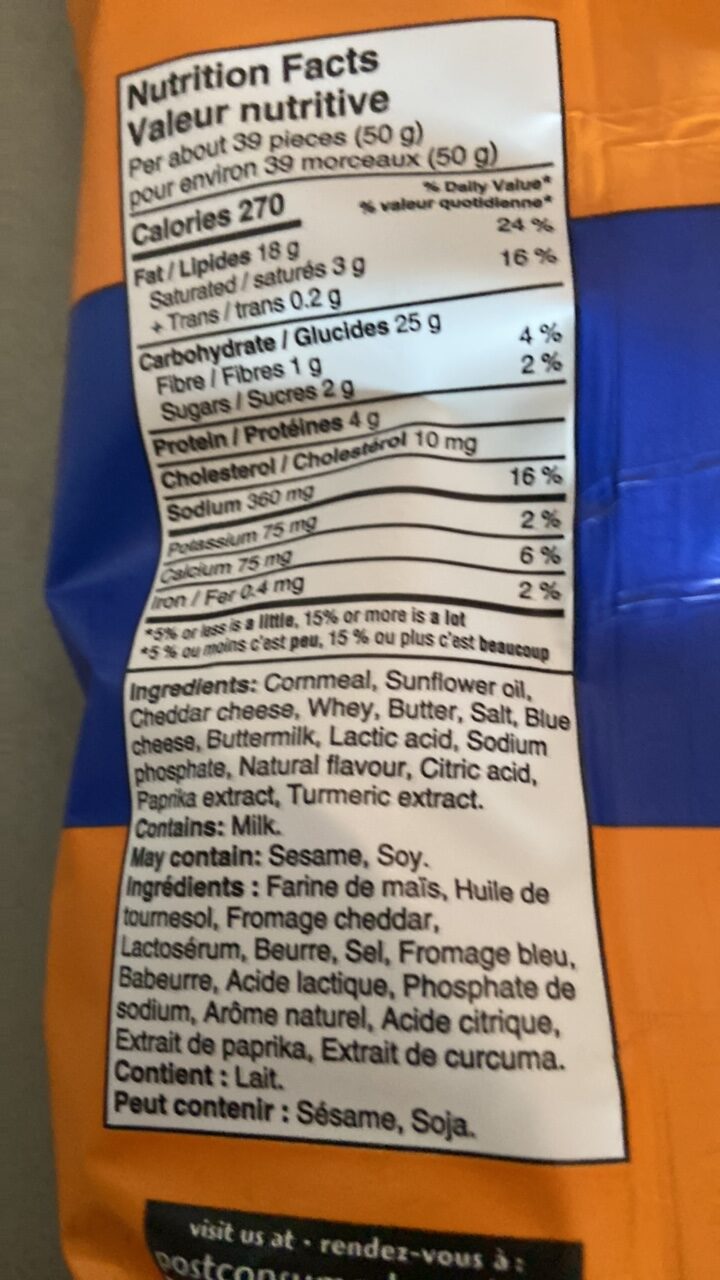
Barcode: 070617004722
Nutrition Facts
HALAL
📝 Reason: Although most ingredients are Halal, several ingredients (cheddar cheese, whey, blue cheese, natural flavour) are potentially Doubtful because their source (especially rennet in cheeses and origin of flavors) is not confirmed as Halal and there is no Halal certification. According to IFANCA and various fiqh opinions, cheese or derivatives made with animal rennet may not be Halal unless certified. (Quran 5:3 prohibits consumption of improperly slaughtered animals and anything not designated Halal).
📄 Certificates: None
Ingredients:
Details
Understanding the Halal Status of Nutrition Facts
Nutrition Facts is a food product packaged with a variety of ingredients that have raised questions regarding its Halal status. As health-conscious consumers and followers of Halal dietary laws, many want to ensure that the products they consume adhere to their religious guidelines. According to our investigation, the Nutrition Facts product is labeled as HALAL, yet some ingredients remain questionable. Let’s delve deeper into the ingredients and their implications on Halal certification.
What Ingredients are in Nutrition Facts?
The product contains the following ingredients:
- Cornmeal
- Sunflower oil
- Cheddar cheese
- Whey
- Butter
- Salt
- Blue cheese
- Buttermilk
- Lactic acid
- Sodium phosphate
- Natural flavour
- Citric acid
- Paprika extract
- Turmeric extract
- Milk
While many of these ingredients are Halal, there are concerns regarding others, leading us to analyze their Halal compliance further.
Analysis of Ingredients’ Halal Status
Cornmeal
Cornmeal is ground dried corn that contains no animal or Haram-derived ingredients, making it Halal.
Sunflower Oil
This plant-based oil is free from animal or Haram-origin additives, affirming its Halal status.
Cheddar Cheese
Cheddar cheese can be problematic as it may use animal rennet for production. Unless Halal-certified, its status remains doubtful.
Whey
A byproduct of cheese production, whey’s Halal status hinges on the source of rennet used in murky cheese-making. Without Halal certification, it is also considered doubtful.
Butter
Typically made from cow’s milk and without Haram additives, butter is generally regarded as Halal.
Salt
A universal mineral, salt is always Halal.
Blue Cheese
Blue cheese may contain animal rennet, raising similar concerns to cheddar; without Halal certification, it is too doubtful.
Buttermilk
As a byproduct of butter, buttermilk is generally Halal unless added substances are Haram.
Lactic Acid
Derived from plant sources or fermentation, lactic acid is considered Halal.
Sodium Phosphate
This mineral-based food additive is Halal.
Natural Flavour
The source of natural flavour can be animal or plant. Due to insufficient information and lack of Halal certification, its status remains doubtful.
Citric Acid
Generally produced through fermentation using fungus, citric acid is plant-derived and Halal.
Paprika Extract & Turmeric Extract
Both paprika and turmeric extracts are plant derivatives and considered Halal.
Milk
As long as milk is derived from cows without Haram additives, it is also Halal.
Conclusion: Understanding Halal Compliance
In summary, while Nutrition Facts is deemed to be Halal, consumers should be cautious due to several ingredients that have uncertain origins. Particularly, dairy products like cheddar cheese and blue cheese may or may not be Halal depending on the rennet used. It is prudent to look for Halal certification to ensure compliance, especially in today’s market. Consult reliable Halal certification bodies or resources like IFANCA to confirm the Halal status of similar products.
